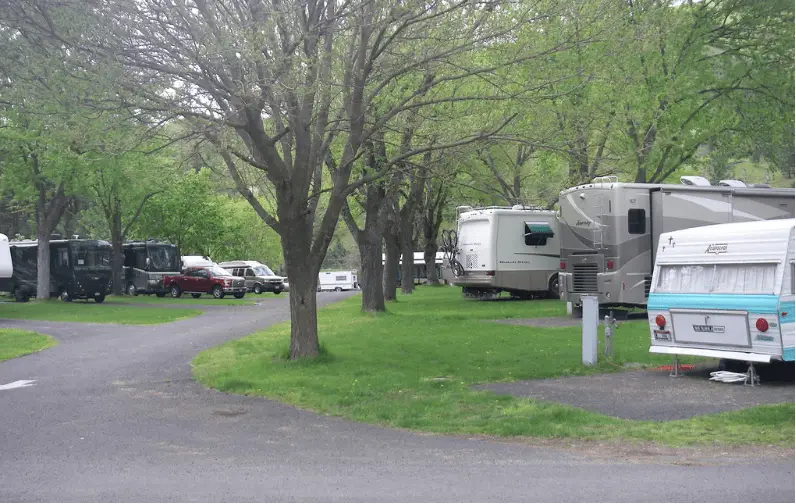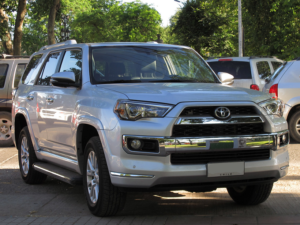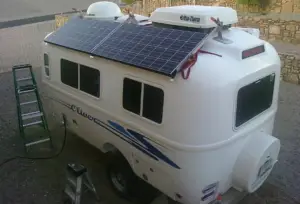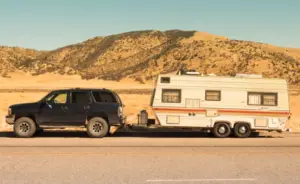There is nothing quite like hitting the open road in an RV. You have the freedom to go wherever you want without the need to forgo the little luxuries that you are used to at home.
Before you get too eager and start loading up your RV, no doubt eager to explore whatever is ahead of you, there are a few things that you need to know.
Do’s and dont’s of RV camping
| Do’s of RV camping | Don’ts of RV camping |
|---|---|
| Plan well before the trip | Don’t ignore RV maintenance |
| Get a proper size generator | Don’t annoy fellow RVers with generator noise |
| Bring along spare parts and tools | Don’t overpack the RV |
| Enjoy the outdoors | Do not overspeed while traveling |
| Stay prepared for things to go wrong | Avoid using awning in high winds |
| Check travel trailer hitch before traveling | Do not travel inside a travel trailer |
| Park your RV leveled | Avoid using major appliances while driving |
| Park your RV in shade | Do not use propane at the gas station |
| Inflate tires to proper pressure | Do not leave thrash at the campsite |
Think of this article as a quick guide to the do’s and don’ts of RV camping. Just few pointers that will make your life on the road a little bit better. Whether you own a motorhome or a travel trailer just be sure of these dos and don’ts while RVing.
1. Do have a plan of where you want to go
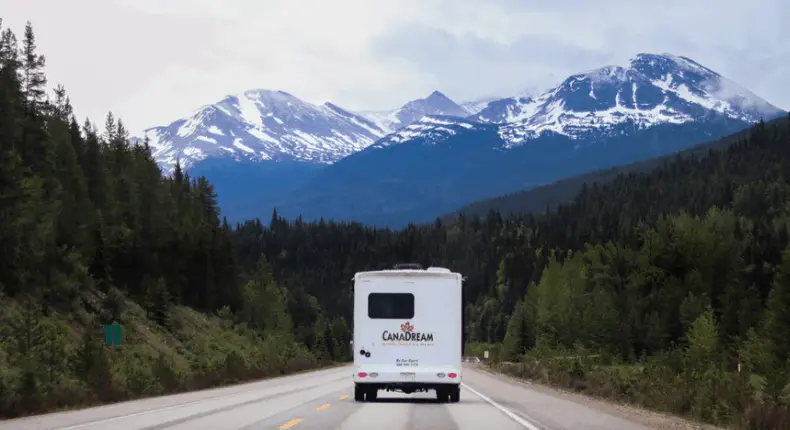
Yes. One of the joys of having an RV is that you go wherever you want, whenever you want. However, you should still have a rough idea of where you want to go.
Since you are heading out in an RV or travel trailer, i have no doubt that you are doing so because you want to enjoy some of those ‘home comforts’ e.g. having a fridge, oven, or maybe even the ability to use your laptop or watch TV. That sort of thing.
This means that wherever you stop for the night should have electrical hook-ups. You probably do not need something like this every single night but what is the point in lugging all that gear around with you if you don’t have the opportunity to use it?
Boondocking or dry camping is great but you will not have basic facilities there. A RV park will give you all sorts of things.
A much needed shore power connection, water refiling, laundry and so many other things.
But, as you already may be aware, RV parks may need reservations. So, be sure you get your slot booked in time.
You may also want to plan how much you have to spend each day. The food that you are going to eat etc. The more planning, the better your trip will be.
2. Do NOT Ignore RV Maintenance
Your RV is a huge vehicle. It has been made to travel for long periods of time, often carting around some pretty heavy stuff. So, while your RV is incredibly durable, it is going to need to have a bit of tender loving care on occasions.
You should have your RV serviced at least once per year. If you are planning on heading out on a longer trip, then you may want to have a qualified mechanic give it a look over to check for any problems.
This will save you a lot of issues later on down the line. Honestly, there are few things worse than having your RV break down in the middle of nowhere.
If you can, you should pick up a book or manual which relates to the maintenance of your RV. There are a lot of ‘on the road’ jobs that you will be able to tackle on your own. Not only will it get you back on the road quicker, but it is going to save you a decent sum of cash too.
You also get on road assistance from insurance companies. That can be a worth package to include in your RV insurance.
Apart from the insurance and annual maintenance be sure to check on RV every now and then. Even when the RV is in storage make sure you give a quick check once in a while. Things like tire, batteries, roof can detoriate even while in storage.
3. Do Buy a Generator
Having a generator is one of the most useful pieces of kit you can buy for your RV. It will provide you with even more freedom. No longer will you be confined to campsites which have electrical hook-ups.
Getting the right one is also critical as otherwise the money and space would be wasted. I have put down a list of best generators you can buy for your RV (this list is prepared keeping in mind the most important parameters – size, weight, cost, noise, compactness, portability, RV ready or not and fuel efficiency )
It is imperative that you buy the right generator, though. Make sure that it is able to pump out enough wattage to ensure that all the electrical appliances in your RV can keep running. But, also not so much that the generator is just far too heavy to move around.
This is going to take a little bit of ‘grunt work’ on your part to have a look through all those appliances, but it is worth it.
4. Do NOT Annoy people with your generator
Generators are loud. Very loud. People camp to relax. The last thing they want is for a huge RV to come rocking up only to switch on an incredibly loud generator.
You are going to need to have respect for other people. If you are planning to do a lot of campsite camping with your RV, then you may want to look into ‘quieter’ generator options like diesel or solar powered.
They do cost a bit more, but they tend to require less in the way of maintenance too, so it does balance out.
In case you made the mistake of buying a low cost generator that is now making lot of noise then do not worry. You can try this methods that can make it less noisy (I myself tried the 5th method and it worked great but that may not be for you if you have already invested high amount, check it out)
5. Do Secure everything in your RV
Before you head back out on the road, it is important that you secure absolutely everything inside your RV. All small loose items should be placed into locked cupboards. Appliances should be strapped down (this is important anyway). Basically, nothing should be able to move inside the vehicle. The road can get bumpy.
6. Do Bring Spare Parts & Tools

If you are heading out on the road, it is important that you bring some spare parts for your motorhome or travel trailer. You should, at the minimum, have a spare tire in tow. Some nuts and bolts for your vehicle wouldn’t go amiss.
You should also have some jumper cables, and a way to charge your battery, if things go completely wrong. As mentioned before; you should know how to use it all too.
7. Do NOT head out on the road right away
Seriously. You can’t just buy an RV and head out on the road straight away. Instead, you need to learn how to use your RV. It isn’t like driving any other vehicle. It is heavier, for starters.
Learn how everything works on a practice drive. Oh, and learn how to park the RV too. It will make your life so much easier when the RVing actually starts.
A 30 feet RV or travel trailer comes with difficulties like backing up or taking turns unless you are much experienced in it.
8. Do NOT Forget to go outside
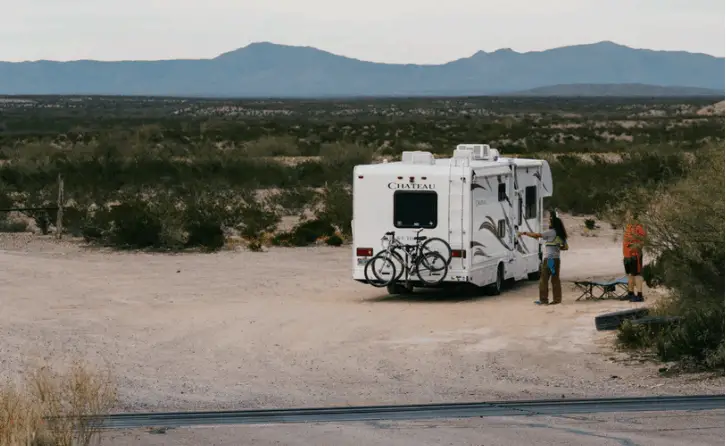
One thing that has always baffled me is the number of people that head out RVing never to actually leave their RV. If you are going to do that, then you may as well have stayed out at home.
Yeah, you are going to be dragging some creature comforts along with you, but you should head out and explore the great outdoors too.
Go for a walk. Have a BBQ outside. Do something.
This is one of the reasons why you should know roughly where you are heading with your RV. If you know in advance, then you should be able to come up with a decent idea of what you want to do once you get there.
Obviously, if you are going to be leaving your RV alone for long periods of time, ensure that you do not have any valuables on display and that you have locked it up securely.
9. Do Take only what you need
Even if you have a very large RV, you will very quickly realize that there is only a limited amount of space in it. Therefore, do not take too much. This especially applies to those ‘bulk’ items that you think that you are going to be using a lot.
Sure, that toilet paper may be discounted if you buy 50 rolls of it, but do you really want 50 rolls of toilet paper taking up a whopping amount of space?
Just buy what you need right now. You can buy more when on the road. Sure, it is going to be a little costlier, but it is going to be so much better than having flying bulk goods in your RV when you hit a speed bump.
This leads me onto the next point. If you do bring something with you, try to ensure that it serves multiple purposes. For example; why bring plastic food containers? They are useful and all, but it is probably better to bring glass ones.
You will be able to use them in your oven. You have instantly cut the number of ‘food storage’ items you need to bring in half. Think about stuff like this, and you will gain so much extra space in your RV. This tip is mostly for RV beginners.
10. Do NOT disturb the campsite
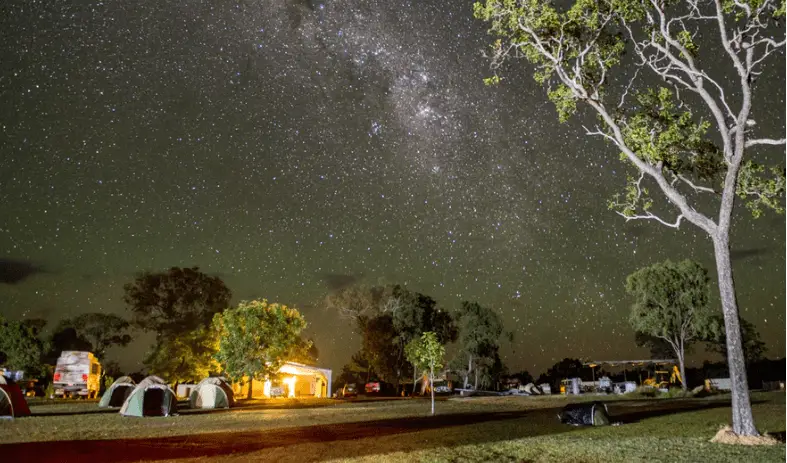
Your RV is probably big. It is probably loud. If you head to a campsite with other tents, you are going to be loud. You probably will disturb people, at least at the start. Try to keep this to an absolute minimum.
You shouldn’t be pulling your RV out at all hours of the day. It not only will damage the grass, but people will get incredibly annoyed. You probably won’t love securing everything again.
If you have a large family heading out on the road, then you may want to have somebody follow in a car. You can use this for ‘day trips’, although if you can’t do that, you should try and explore the area on foot.
When the night starts to roll in, make sure that your TV or sound system are turned down low. They shouldn’t be heard outside of the RV. It is annoying.
When you leave the campsite at the end of the trip, make sure that you pick up all of your trash. Leave absolutely no sign that you were there. I am sure many of you will agree with this RV living etiquette.
11. Do prepare for things to go wrong
We don’t think there is a single person out there who has had a ‘perfect’ vacation. You may think you had one, but if you think back, you will realize that something did go wrong on it. RV camping is no exception to this rule.
Always prepare for something to go wrong. It could be a mechanical issue. One of your electrical appliances could break. The weather could end up being awful. Somebody could get sick.
Sure, you are not always going to be able to solve issues there and then, but there is a lot less stress involved if you don’t go in with the illusion that absolutely everything about your trip will go perfectly.
12. Do NOT use Awning in high winds
Having an awning in your RV is a great asset, specially when the RV is small like class B RV or tiny travel trailer. It helps in increasing the space that you can live and spend your time.
Awnings should not be left opened when you are not around. They may break due to high winds and hence whenever there is high wind flowing make sure you get them rolling down.
13. Do NOT travel inside a travel trailer
This is something that should not be practiced anywhere in USA. Traveling in a travel trailer is not allowed and hence follow it strictly.
Travel trailer will be towed by a car or a truck, wherein the driver won’t have any contact with those present inside the trailer. Thus it is not wise and not allowed to be inside a moving trailer. I am sure we can have complete different list of travel trailer dos and donts.
14. Do NOT use major appliances while driving
Avoid using appliances while you are in your moving motorhome. Appliances like a refrigerator or washer should not be used while the RV is moving.
Its better to keep your portable generator off when driving. If you feel the urge of cooking something then park your RV on a safe road side parking and continue with it.
15. Do check the travel trailer hitch before starting
A travel trailer or fifth wheel need to be connected via a hitch to your car or truck. Make sure you check the hitch and other components before starting.
16. Do park your RV leveled
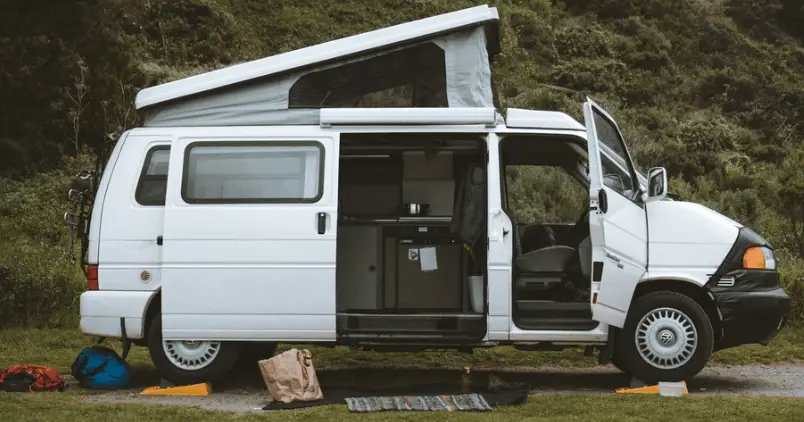
Parking your RV or travel trailer on a leveled surface is quite important. A RV residing on not so leveled surface may result in malfunctioning of some of your appliances like refrigerator. Apart from this, there are several other reasons why you shouldn’t be parking it on unleveled surface. Check out my previous published guide on leveling a RV and its importance.
Make sure you have those leveling blocks with you always. You never know when you will need them. A RV park even though will have so many facilities may not always give you perfectly fine parking slot.
17. Do NOT use propane at a gas station
Using propane at gas stations is not allowed and you should always keep it shut when in proximity of the gas station. Propane is easy to carry and easily available, hence lot of people opt for propane run appliances. But make sure you follow this tip.
18. Do park your RV in shade
Parking a RV in shade and in the right orientation is very necessary during summer season. This helps a lot to keep your RV free from heating. If you are planning to camp in high humidity region then this tip will help you a lot.
Conclusion
Honestly, after a few trips, a lot of the tips on this page will be common knowledge. The best thing you can do now is head out on a practice drive with your RV. Then, once you have the planning done, head on the road. You will have an enjoyable experience living in RV, i promise.

